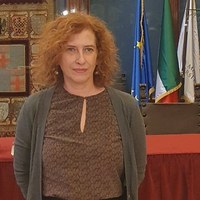Cristina DEMARIA

Member of the Governing Council of the Magna Charta Observatory and Vice-Rector Alma Mater Studiorum-Università di Bologna
Cristina Demaria is currently the Rector’s delegate for Equity, Diversity and Inclusion of Alma Mater – The University of Bologna. She is a Professor of Semiotics at DAR – Department of the Arts and has worked extensively on cultural representations and practices of gender and intersectionality, genres of testimony, post-conflict representations, the construction and reconstruction of collective and cultural memories. She has authored four monographs and more than eighty articles and book’s chapters, edited and co-edited seven books and several scientific journals’ special issues; she participated in various national and international research projects, such as Diaspora and cultural transfer, an interdisciplinary research project coordinated by the Centre for the Study of Post-conflict Cultures of the University of Nottingham (UK) and funded by the British Academy for Arts; Smart cities, socio-cultural capital and cultural heritage, in collaboration with the Catholic University of Sao Paulo (Brazil); FP7-PEOPLE-2013-IRSES project MEMOSUR -A Lesson for Europe: Memory, Trauma and Reconciliation in Chile and Argentina, and she is currently engaged in H2020-MSCA-RISE-2017 project SPEME- Questioning Traumatic Heritage: Spaces of Memory in Europe, Argentina, Colombia. She has been a visiting professor in many universities and institutes, such as the Institute of Advanced Studies of the University of London, the University of Buenos Aires and the University of Amsterdam - School for Heritage, Memory and Material Culture. She is the referee for many international and Italian scientific journal in the fields of Philosophy and Theories of Languages, Semiotics and Cultural Studies, and sits in the editorial board of international scientific journals and book series. She has been the external evaluator for the award of research grants by FIAS - French Institutes for Advanced Study Fellowships Programme, and by EURIAS - European Institutes for Advanced Study Fellowship Programme, both supported by the European Commission. As the Rector’s delegate for Equity, Diversity and Inclusion, she is a member of several working groups and European networks, such as the Diversity Council of UNA Europa consortium, where she leads the action group on “best practices”; the Equality and Diversity working group of the Coimbra Group; and the Gender and Diversity working group of The Guild of European Research-Intensive Universities.